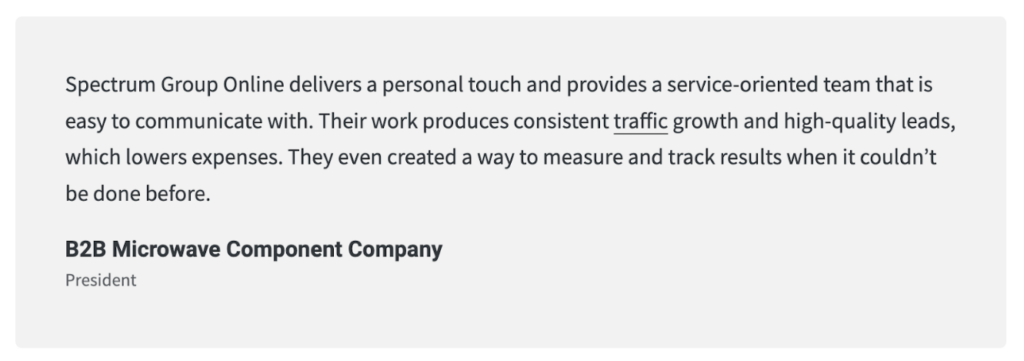- Make your local business stand out from the competition
- Improve brand awareness and search visibility
- Showcase your brand, products & services with Google (and other search engines’) Rich Results in organic search
- Get more leads and conversions from digital marketing
… want all the above? We are here to help you unlock Structured Data (a.k.a. Schema.org or Schema)’s advantage.
Get noticed with
Schema SEO
What is Local Business Schema?
Local business schema is a structured data markup code added to your business’ website. It makes it easier for search engines to identify an organization’s type and the products or services you provide so it can accurately match your information to searches.
Schema is a collaborative project between multiple search engines to improve the understanding and display of website content. The markup uses standardized tags to help search engines categorize and match relevant content on Search Engine Results Pages (SERPs). You can optimize your website — especially for local SEO — by implementing schema markup for your business.
Enhancing Your Local SEO Strategies with Schema
In light of other SEO strategies like link earning, content writing, or local SEO, schema markup further enhances SEO optimization efforts by adding context and relating pages to each other. Examples of context are connecting to well-respected sources (e.g., industry organizations, Wikipedia) and linking your site to your Google Business Profile with code. Schema, in addition to other SEO strategies, can lead to better visibility in organic search results.
Let’s use an example of a financial technology service provider. On their website, we can categorize the business as a “LocalBusiness” schema type. The details of the company under Local Business (name, address, phone number) are called schema properties. An example of the schema values to input would be “Spectrum Financial Technologies, San Jose California, and (090) 000-000”. You can see an example of that below using a schema markup tool.

Get noticed with
Schema SEO
More Schema Markup Types We Can Implement For You
If you’re looking to get started with schema SEO, you’ll want to identify which types best suit your business and content. Here is a partial list from schema.org:
- LocalBusiness: Used for companies with physical locations, including contact information, address, and opening hours.
- Product: Ideal for e-commerce websites, it provides details about products, such as name, price, availability, and reviews.
- Article: For news articles, blog posts, and other written content, it includes information like headlines and the date published.
- Event: Used for events with details like date, time, location, and ticket information.
- Review: To showcase product or service reviews with ratings and comments.
- Recipe: Ideal for food-related websites, providing details like ingredients, cooking time, and nutrition facts.
- Person: Describes individuals, including their name, job title, and social media profiles.
- FAQPage: For frequently asked questions pages, displaying questions and answers.
- BreadcrumbList: Helps create breadcrumb navigation for better website structure.
- VideoObject: To mark up video content with details like duration, thumbnail, and description.
Schema Your Way to the Top
We have been helping businesses generate revenue from their websites for years. We also know a thing or two about getting found by search engines, improving traffic, and driving lead generation. Now is the perfect time to leverage the many benefits of schema into your SEO strategy.

Ready to take advantage of Schema Markup’s competitive edge? Contact us today to take the next step in building your website’s visibility in organic search. Together, we’ll build a winning strategy.
Get noticed with
Schema SEO
Frequently Asked Questions
- Can you set up schema markup for WordPress?
Yes. Schema markup can be used on all website platforms, including WordPress.
- Will Schema SEO help my local business?
Yes. Schema markup helps all types of businesses, including those with a local geographic reach and national and international companies.
- Should I put schema markup on every page?
Ideally, schema markup is on all pages. However, that may not be feasible. We recommend adding schema markup on important pages such as the homepage, contact, company info, and services/products. For more advanced schema projects, we can create templates that standardize information for products or services.
- How do you get rich snippets?
Besides answering questions and keeping your content organized, adding the right schema markup helps you get rich snippets. Schema markup helps search engines understand the context, the meaning of content, and the related entities.
- How do you optimize knowledge graphs?
Adding schema helps optimize your web pages for the knowledge panel and graph. Schema enables you to tag the author ( EAT ), publish date, products/services, and even use the u0022sameAs Propertyu0022 to link to wiki data items. Other ways to optimize your knowledge panel or graph are to claim your Google Business Profile account, similar Local SEO accounts, and leverage social media.
